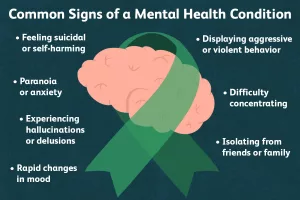If you’ve ever felt like someone in your life just isn’t… right? Not the kind of off that’s quirky or funny, but the kind that leaves you confused, frustrated, or questioning your own worth… yeah, you’re not alone.
We’ve all met people like this—and believe me, I’ve seen my fair share. It could be a partner, a friend, a coworker, or even that extended family member who always makes things about them. Learning to recognize the patterns can be powerful. And here’s where the 12 traits of a narcissist come in handy. Think of it like a decoder ring—for emotionally confusing people.
Stuck with someone like this and feeling exhausted? Let’s take a deep but gentle look at what it really means to deal with a narcissist—what those 12 traits actually are, why they behave the way they do, and most importantly, how understanding them can help you protect yourself.
What Is a Narcissist?

Okay, first off: No, you’re not imagining things.
People throw around the term “narcissist” a lot these days. “My ex was such a narcissist.” “Only a narcissist could prance around like that.” But real narcissistic behavior—especially when it comes to narcissistic personality disorder—is more than just someone being full of themselves.
A narcissist usually exhibits a consistent set of behaviors and attitudes that reflect an unhealthy obsession with self, a lack of empathy for others, and a need for admiration or control. They have a warped mirror in their minds—where only their reflection matters, and everyone else is there to compliment it.
Does that sound familiar? Let’s dive into the 12 core traits that can help you tell if someone is genuinely behaving like a narcissist.
The 12 Telltale Narcissistic Traits
So here are the classic traits most mental health experts agree on (and yes, we’re pulling from the actual diagnostic guidelines found in places like Psych Central). They’re based on long-term research—and trust me, they aren’t just random behaviors.
1. Grandiose Sense of Self-Importance
This one’s obvious when you catch it. The narcissist doesn’t just think they’re good; they believe they’re exceptional. Average people don’t compare. Their accomplishments? Magnified like they’re moments before the Oscars. A small win feels like a Emmy speech—even if nobody else noticed.
2. Obsession With Fantasies of Success, Power, or Beauty
They don’t work toward goals—they live in daydreams where they’ve already won, or at least should be winning. These visions matter more than the real world, and they may act frustrated when reality isn’t giving them constant standing ovations.
3. A Belief They’re Special and Unique
You’ll notice phrases like “I can only relate to certain types of people,” or “Not everyone gets me.” They believe they’re above normal life and deserve special recognition just for existing. You’ll find them aligning with high-status people or name-dropping to seem bigger than they are.
4. Extreme Need for Admiration (Narcissistic Supply)
Self-validation isn’t enough. They crave external praise like plants crave sunshine. Without admiration, they wilt—or lash out. And here’s the kicker: it’s not until their self-esteem feels “fed” that they go back to acting smug again.
5. Deep Sense of Entitlement
Road rage? Probably. Waiting in line for coffee behind someone? That person needs to step aside because this customer really needs that macchiato now. Everything revolves around getting what they deserve right now—and why shouldn’t they?
6. Exploitative Behavior
Remember that friend who only called when needing money, favors, or emotional support? This is textbook narcissism. People aren’t people. They’re resources. If there’s no return, suddenly that friendship dries up like a summer puddle.
7. Lack of Empathy
I know it’s hard to describe, but try thinking of someone whose reaction to hearing you’re sad is… blank. Or worse, judgmental. Maybe they say something like, “Just get over it,” or “Have some wine.” Sound familiar?
8. Envy and Belief Others Envy Them
Projection at its finest. If they didn’t receive the job promotion, don’t be surprised if they claim that person was lucky, probably slept their way through, or just knows the right people. That BFF who moved cities and posted glow-up photos? Nailed it, but they’ll say, “She only did that so people would notice her.”
9. Arrogant Behavior
Know that person who interrupts you mid-conversation to make a point about something related? Or never apologizes unless they must? The arrogance shows clearly in body language and dialogue—and whether they put others down subtly or outright.
10. Intense Sensitivity to Criticism
They’ll storm off, shut down, or manage mood-shifts that feel like storms. Remind someone of forgetting to text back once? Be prepared to feel guilty—even though they vanished for days. They don’t just disagree; they’re personally attacked.
11. Unrealistic Expectations
From relationships to roommates, nothing you do is ever enough. You remembered their birthday—but forgot their parent’s favorite color (years ago). You passed the test but missed an A-minus. Work well but fail to trend. These traits see color meanings in gray—which leaves them devastated by inevitables like imperfection.
12. Excessive Self-Reflection
Literally everything circles back to them. In group settings, the conversation rotates like the sun around the narcissist’s head. They rarely ask questions—especially heartfelt ones—that show interest in you. It’s as if they’re curious about everyone for their utility—not for their connection.
Vulnerable vs. Grandiose Narcissism
As strange as it may seem, there’s actually a quieter side of narcissism called vulnerable narcissism. While the classic version tends to project confidence and charm, vulnerable narcissists hide behind anxiety, defensiveness, or passive-aggression.
| Type | Grandiose Narcissist | Vulnerable Narcissist |
|---|---|---|
| Demeanor | Loud and proud | Quiet and worried |
| Self-perception | I’m the best! | I wish I were the best! |
| Mood after rejection | Arrogant venting | Emotional withdrawal |
| Way to interact | Overpower others | Insist others protect them |
That vulnerable type might come across like a wounded bird, needing constant reassurance—without ever returning the favor. A bit harder to spot… but still frustrating in relationships.
Frequently Asked Questions About Narcissism
Because yes, you’ve probably thought of some of these already.
Can a Narcissist Love?
Oh sugar, this is a loaded one.
To love someone wholeheartedly, with full heart and no repayment required—that’s tough when empathy’s missing. Yes, they can care for benefits they get from you—your presence, attention, loyalty—but unconditional love? Probably not in any form that feels nourishing to the heart. Many explain that loving a narcissist feels like giving chocolate to someone who only eats cake—and crying when the gift gets thrown away without tasting.
Can a Narcissist Change?
Well, technically? Yes. Emotionally? Most times, no.
Because change starts with acknowledgment—and most narcissists genuinely don’t see a problem with their behavior—they believe you’re the issue. Unless their motivation comes from genuine desire to heal—for example, losing a job due to poor teamwork—they won’t stick around long enough to flip the thinking switch. Healthy change typically requires a professional intervention (read more on that in studies from the Journal of Clinical Psychiatry).
How to Stop Being a Narcissist?
If you see glimpses of yourself in this list and that makes your skin crawl—it’s the first good sign.
To reduce narcissistic behavior drops right into self-awareness territory. It includes practicing behaviors that build empathy, listening more, valuing others deeply, taking responsibility for harm done—and above everything else: sitting with uncomfortable truths about how our actions impact other people. Check in consistently with close friends or a therapist if you’re concerned.
How to Live with a Narcissist?
Deep breath.
Living with a full-blown narcissist takes patience, consistency, and deep personal reflection—because you cannot control their behavior, and trying to “fix” them causes more harm than good. Stick to strict “NOs.” Communicate clearly—and firmly disengage when conversations go downhill. Finding a therapist for emotional protection and validation helps more than you’ll ever expect.
How to Make a Narcissist Miserable
Wait—for a second, took us both aback!
Sit with me on this: hurting them usually makes you bitter. And rage doesn’t solve much—it feeds the cycle. You’d rather focus on stepping away, setting boundaries, healing your wounds, reclaiming joy—and ensuring they don’t cross into your space anymore.
Want freedom? Focus on you.
A Glimpse of Real Life
Here’s a quick sidebar—a story shared by a reader named Sophia (name changed):
“I had a sister-in-law who couldn’t let a family gathering go by without recounting her child’s every positive grade or gift-winning creation during art class. Whenever I vented about my stress at work or asked for the dog’s leash, she switched topics (back) to herself within seconds. One time, I called her out for commentating during a funeral. She stared straight at me and said, ‘Excuse me? That baby’s weight is actually a really important thing to address among moms today.’
I knew then and there, I was dealing with something different. It took months—and many nights wondering ‘what’s wrong with me’—before I realized the issue hadn’t been mine at all.”
This following awareness can sometimes be the difference between losing yourself in confusion and regaining clarity.
You Deserve Better Than That
We don’t dish out stats or theory clues to shame—but to help.
Once you recognize the 12 traits, patterns start making sense. The urge to fix people dissolves when you understand why they don’t want to be fixed, and the heat you felt while walking away shrinks into liberated calm. Deal with your own tenderness. Evaluate your relationships fairly. Lean into the knowledge that loving others becomes easier once you protect yourself emotionally.
If someone in your daily life reflects a few of these traits, it’s natural to wonder: How can I test if someone is truly narcissistic? Often, one telling question can reveal a lot. Like this one: Spot narcissism with one easy trick.
Final Thoughts – Healing Begins With Clarity
The beauty of recognizing the 12 traits of a narcissist isn’t for you to point fingers or label constantly. It’s to create space—space to heal, to protect, and to guard your peace. Because sometimes, the gentlest rebellion is walking away with yourself, whole and aware.
So the next time you’re questioning reality because of someone else’s ‘energy’—pause. Reflect. Does their language, energy, and movement match someone who respects you—or treat you like a satellite to themselves?
No, you aren’t imagining it. You’re awakening to what’s real.
Just because it’s normal in their world doesn’t mean it’s safe in yours.

























Leave a Reply
You must be logged in to post a comment.